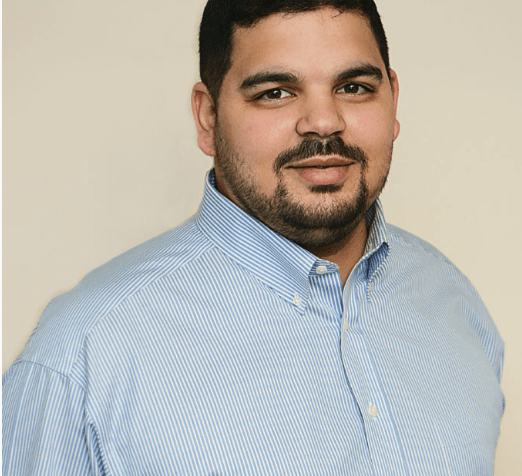
Name, pronouns, institution, and title:
Ahmed Hosni (he/him) Ohio State University, Assistant Director, Student Wellness Center
Can you tell us a bit about your program and how you got involved with collegiate recovery?
The Ohio State CRC is about eight years old. It is a part of Student Life at Ohio State and offers scholarships, housing, and recovery support services to students in or seeking recovery from a substance use disorder. I got started with collegiate recovery as a student in a CRP myself. The unfortunate thing was having to travel 1,500 miles to find a recovery-supportive campus, leaving behind friends, family, and my support system. When the opportunity to come back to my home state and help create the recovery support services that changed my life opened up, I was eager to do so. I have been here since 2015 and it has been an amazing adventure that has brought some of the most wonderful people into my life.
How long have you been on the ARHE Board of Directors and what is your role?
I am a member at large on the board since October 2020. Prior to this role, I served as the Midwest Representative for two years.
What attracted you to get involved as a board member at ARHE?
I love collegiate recovery because it has transformed my life. Still, it was evident that there was much work to do and growth that was necessary, and being a part of the board felt like a tangible way to contribute. The idea that no person should have to sacrifice the opportunity to continue their education or to have a genuine experience at college because of their recovery or struggle with substance misuse drives me, especially for those with previous criminal justice interaction like myself. The board of ARHE was a great opportunity for me to do more to help create that vision.
How do you envision collegiate recovery evolving over the next few years?
My hopes are that it continues to spread into places that are more accessible for all. Many more community colleges and trade schools that provide opportunities for individuals to better their lives. I believe that education is the best way to invest in those who are in or seeking recovery. It provides financial hope and a sense of purpose that strengthens one’s resolve to continue pushing forward towards the life they deserve.
I also believe that CRPs can be catalysts of change for individuals of marginalized identities and for those forced to live in the margins of our society due to the effects substance misuse has had on their lives. We have a lot of work to do within our own programs, ARHE, and ourselves as CRP professionals to get there, but I believe we can.
What’s been your favorite part of being involved with collegiate recovery and ARHE?
Getting to see the global perspective of collegiate recovery. The interdependence of each campus. It reminds me of the idea that “the whole is greater than the sum of its parts.” The work happening on each campus is vitally important but what we will accomplish together as a field will change the world.
